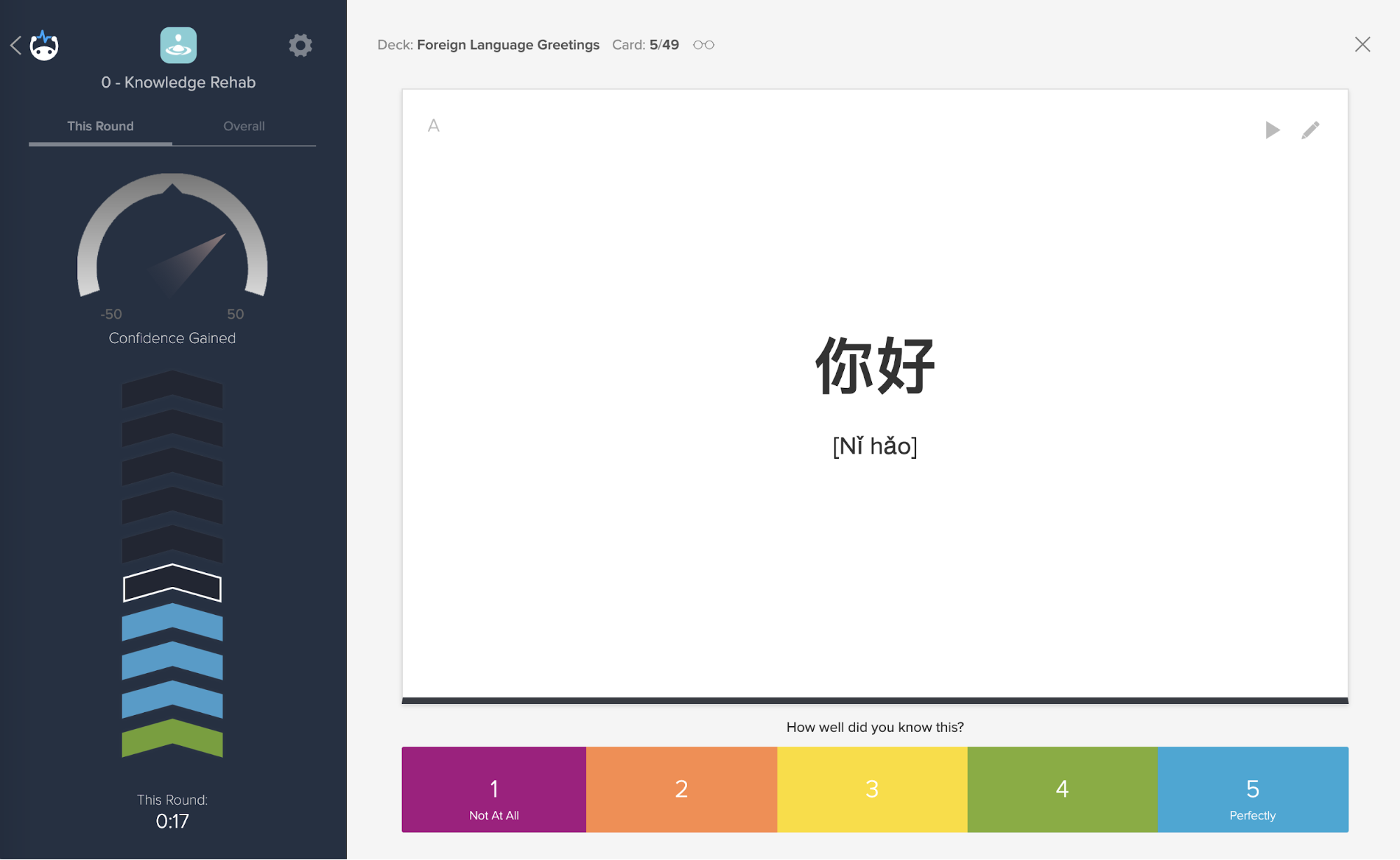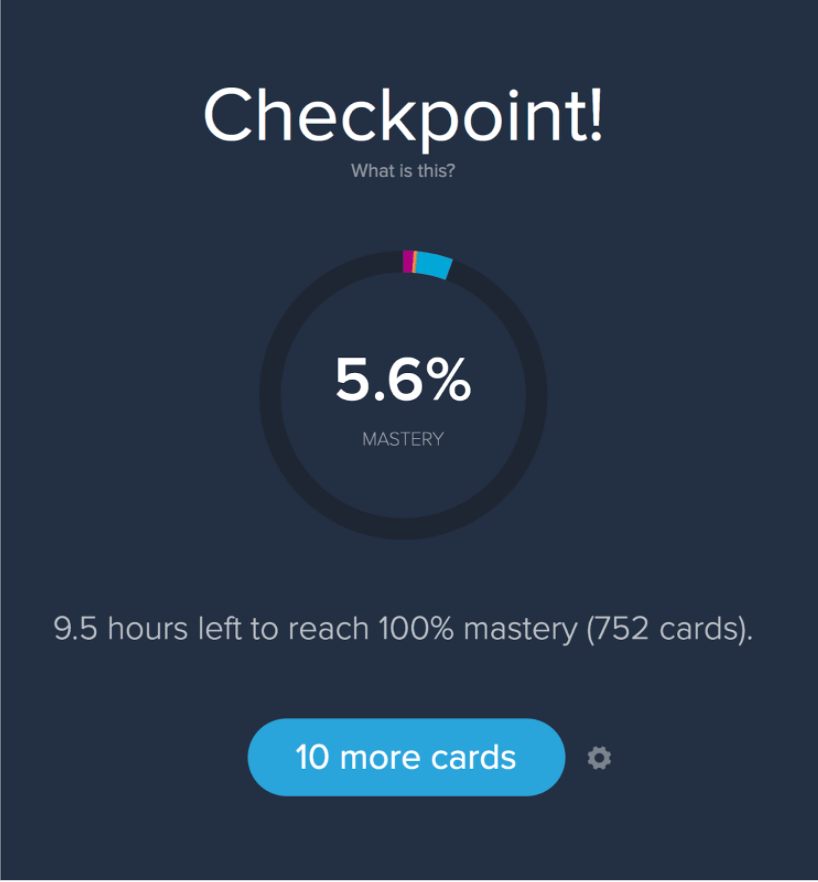Have you ever stood dumbfounded in front of a stranger who’s just released a stream of gibberish at you? You feel frustrated. You can’t understand and you can’t respond. All you want is help finding your way to the Musée d'Orsay in Paris; to order something off the menu that won’t set your head on fire in Thailand; or (really, really urgent) directions to el baño in Mexico.
We’ve all had a difficult moment (or five) that has led to the mother of all questions: should I learn a foreign language?
There’s nothing quite like being stranded in a foreign country—totally unable to communicate with anyone—to make you feel stupid. Why don’t you remember a word of the Spanish or French you learned in school? What was the point of all those hours studying if you can’t even use it to buy a train ticket now in your time of need?
This shame of only being able to speak one language even follows those among us who don’t travel often. This is particularly the case in richly cultural melting pot cities where you are likely to hear three or more languages spoken when walking down the street.
The point is, we all grapple with the question of whether or not we should invest ourselves in learning a foreign language. And if the prospect of that challenge has depressed or scared you until this point, I’m here to tell you that it doesn’t have to.
As the developers of the world's most effective language-learning program, Brainscape has spent years analyzing our users' motivation, study habits, and progress. We've found that learning a language doesn't have to be a 'all or nothing' choice. Instead, everyone can identify different goals for learning a language.
For example, if you really want to become fluent in Spanish, you'll need to buckle down and prepare to spend hours studying hard every week. But if you really just want to be able to travel a little easier around France or Italy, it might be perfectly ok to set your sights on just learning basic French phrases (or Italian) and nothing more.
[But if you want to learn a language, Brainscape can help you learn any language.]
So, without further ado, let’s help you figure out whether learning a language is for you or not.
1. Yes, learning a language is difficult

Everyone is a language person. If you weren’t, you wouldn’t be speaking English right now.
People sign up to learn foreign languages every single day but only a few make it to proficiency. Those who falter and fail tend to blame their inability on some kind of intrinsic quality or trait—saying “I’m just not a language person” or “I don’t have a head for languages”.
I hate to break it to you but that is total nonsense!
Everyone is a language person. If you weren’t, you wouldn’t be speaking English right now. And if you could learn English as a child, you can learn any language as an adult. You don't have to be smart to learn a language.
“But I’m too old to learn a new language!”
Even more nonsense. There is no language-learning critical period that magically switches off at a certain age. No matter how old you are, everyone has the cognitive ability to learn a language, even the notoriously hard ones like Chinese and French.
What is it, then? Why do so many people commit to learning new languages and then give up weeks or months down the road?
The answer isn’t necessarily that learning a new language is prohibitively hard (because it’s not ... it’s just hard). Rather, it’s because students lack the need to learn.
Think about it. As a young child, there was a real and pressing need to learn to speak English, or whatever your first language is. If you didn’t, you’d forever be bewildered by, fundamentally cut-off from, and unable to communicate with the people around you.
Now, as an adult wanting, but not needing to learn another language, there is one very important piece of the puzzle missing: drive—the motivation to learn that new language.
As an American, for example, you can get along fine without Spanish. Of course, it would be great to speak Spanish because there are so many Spanish-speaking citizens in the country. But without need motivating you onwards, it’s common for students to slowly lose interest in learning.
A journey like this, requiring a huge investment of time and cognitive effort, needs a life-impacting reward in order to be seen as fruitful by our lazy brains. Without this reward—the proverbial carrot at the end of the stick—you’ll struggle to find the drive to pay attention, learn deliberately, and commit for the thousands of hours needed.
In other words: the effort needs to be worthy of the reward.
2. Why learn a new language?

Ask yourself: Why learn a new language? How will you benefit?
In our ever-connected world, learning a language or becoming bilingual, trilingual, or even a polyglot has bountiful benefits. It can help you sail through immigration or flirt with that cute foreign boy. It can also literally save your ass from incarceration over some silly misunderstanding (I just needed to pee, officer; I wasn’t indecently exposing myself, I swear!)
But aside from smoothing over communications with people from other cultures and continents, there are a bevy of incredible benefits to learning a foreign language.
Benefit 1. For cognitive benefits
In 2019, the British Academy reviewed academic evidence for the cognitive benefits of learning a language. What they found was a complex (though at times inconsistent) correlation with:
- Academic achievement in other subjects,
- The staving off of cognitive decline as one ages, and
- Improvements in concentration and multitasking.
In other words, learning languages can make you smarter and sharper!
Benefit 2. For career benefits
The ability to speak two or more languages fluently is a huge competitive advantage in today’s job market. In fact, in both 2010 and 2015, the U.S. job market saw the number of vacancies for bilingual candidates more than double! As more companies go global, being able to communicate effectively with foreign clients, customers, partners, and colleagues are becoming a major advantage that can put you in great demand as an employee.
Benefit 3. For connection
There are few more powerful ways of connecting and of turning perfect strangers into lifelong friends than speaking their language.
The most rewarding human experience is the connection, whether it’s with a lover or the lady serving you coffee in an airport lounge. People who can speak more than one language are therefore uniquely positioned to connect with more people and—moreover—with people from other cultures.
The benefits of this connection become evident in a million tiny circumstances that all serve to enrich your life experience:
- Asking your cab driver about his family in his native language in South Africa.
- Ordering food off the menu in a tiny ramshackle restaurant in Thailand.
- Chatting up a beautiful woman at the bar in Barcelona.
- Meeting your partner’s family for the first time in Ecuador and being able to tell them about yourself.
There are few more powerful ways of connecting and of turning perfect strangers into lifelong friends than speaking their language.
Any or all of these three motivators could be the reason(s) you commit to learning a language. But—and this is the next important question to ask yourself—are these benefits motivation enough for you?
3. What if learning a language isn’t for you?
You're asking yourself: Should I learn a foreign language? Is it worth the effort?
The fact is, people that become fluent in a foreign language commit to regular hours of speaking drills and flashcard learning. They practice diligently, sometimes spending several hours every day, and immerse themselves in the culture. It takes more than mere optimism to struggle through vocabulary, dialects, tones, grammar, syntax, and pronunciation.
The point is, if you kick off with very little motivation, you’re likely to end up learning a handful of phrases that you could have picked up from your Spanish-speaking friends over some nachos. And you'll likely end up forgetting those phrases pretty quickly if you don't apply them in the real world.

Be honest with yourself. Are you ready or able to make the kind of commitment that learning a new language demands? Do you have at least an hour a day, every day, to devote to forging ahead in your studies? Do you have the determination to keep at it after a few weeks or even a few months?
If the answer is “no”, that’s perfectly okay! It also doesn’t mean you have to scrap languages completely.
4. Learning a little of a new language

You can benefit enormously from learning enough of a language to say “hi”, “please”, and “thank you”. To order off the menu, ask for directions to the bathroom, or chat up a stranger. Why not dedicate a little time to learning a few key phrases in Korean, German, French, Russian, or Hindi? Or even all of them? Because ... why not?
There are compromises to be made so don’t turn away from trying to learn a language just because you don’t think you’ll ever become perfectly fluent in it. Dip your toes into language learning: it can be a lot of fun ... and beneficial!
If you really want to practice just a few key greetings in over a dozen languages, check out Brainscape’s Foreign Language Greetings deck. The adaptive spaced repetition algorithm will help you learn faster and remember these words and phrases longer.
Did we mention that being able to speak a different language, even if it is just a few phrases, makes you look super cultured and is hugely attractive?
Go crazy with all that extra time you saved
Now you can dedicate the time you would have spent dragging your sorry butt through a language on exploring your other talents and skills. How about learning to code, becoming a wine connoisseur, or mastering an instrument? There are tons of other ways to challenge your brain or to become a renaissance person! And if you’re lacking inspiration, Brainscape has an immense library of topics ready for you to browse through.
If you’ve read this far and are convinced you really do have the motivation to become proficient in a foreign tongue, Brainscape can support you on that journey with the best way to learn a language.
5. Stay motivated to learn a new language with these study tips
There isn’t a language under the sun that you can’t learn, even if you do sound a little silly to native speakers.
Here are some great tips for staying motivated on your journey:
Tip 1. Determine your primary motivation(s)
Perhaps you’re going on exchange to Spain, or you have a new French boyfriend, or your job requires you to converse with their partners in Russia. Whatever the motivation, make sure you keep it front and center when your alarm goes off at 6 am to do your daily grind of flashcard learning.

Tip 2. Become a serious learner
Teachers and parents can watch over your shoulder, send words of encouragement, and streamline your education. And sure, some games and apps can attempt to provide extrinsic rewards (e.g. DuoLingo or MindSnacks). But incentives, guardians, and software can only get you so far. You will end up quitting unless you have a real goal.
The bottom line is that achieving your goal is your job. And it’s your responsibility to show up every day to study. We here at Brainscape know this to be true because we've spent several years working with our expert partners on how to best learn a language. We know that, above all else, the students with the burning desire and a plan to learn are the ones who become fluent.
6. Step-by-step motivation plan for learning a new language
Step 1. Use connection as your goal
Languages are about people. If you don’t already have the people in mind with whom you want to communicate, simply learning the language won’t be enough motivation. But if you focus intensely upon the who, it makes every study session a stepping stone towards that person; towards that connection.
Goals that focus on connection might include planning to study abroad, moving to a foreign country for a year, going on a foreign assignment for your job, learning to speak to your spouse’s family, and many more.
Step 2. Decide upon your goal level of “proficiency”
Ask yourself what level of proficiency you would be satisfied with, also taking into account how much time you have available to study the language. Do you want a high level of conversational dexterity? To get every joke, speak quickly, and engage multiple native speakers with your stories?
Or would you be happy just asking for directions to the bathroom with the thick accent and poor grammar that most native speakers find endearing?
Both levels of proficiency are far more impressive than not knowing the language at all. But the former might take years to achieve and the latter, an hour. Imagine yourself in the realistic goal state, and live it in your mind. Then live it in your studies.
Step 3. Choose a goal date by which you’d like to be proficient
When is your trip? When are your in-laws coming to town? How many years away is your desired new career in China? Have a date in mind by which you want to become the speaker you visualize and work backward to today, portioning out the lesson modules in a way that makes your goal achievable in that time frame.
If you’re using Brainscape’s adaptive text and audio flashcards to study a foreign language, you get an estimate of time left in order to reach each level of proficiency. This makes it even easier to pace yourself on your journey to your goal date.

Step 4. Do more than academic studying
There are very few people that can sit for endless hours, day in and day out, with study apps and course books. You’ll be much more motivated to learn continuously if your routine mixes academic materials with real-world activities (e.g. movies, podcasts, books, magazines, friendly conversations, debates, etc.) in your target language.
Choose the kind of media you’d turn to for entertainment in your own language but be careful to match your skill level with the media. And while you cannot learn a language simply from watching TV, it’s kinda nice to start picking up on the flow, cadence, and rhythm of a foreign language, as well as that country’s culture, by watching a few films made there. In your spare time, of course: strictly speaking, this cannot count as a language lesson.
Check out other study motivation hacks for learning a new language or any other topic, and fighting procrastination.
7. Start your language journey today
Those who do have the motivation to learn a language usually start the process themselves long before they walk into a class or hire a tutor. But if you don’t have that motivation, don’t beat yourself up about it. There are a ton of travel and language apps that can help you out with translation if/when you get into a bind.
If you do want to start your journey towards mastering a new language today, try Brainscape's effective foreign language app using adaptive mobile and web flashcards.
No matter which goal you’ve determined for yourself—being able to understand a foreign menu or out-argue the waiter who brought you the wrong wine—Brainscape has the tools to help you master your chosen language.
References
Caplan, B. (2018, June 20). The numbers speak: foreign language requirements are a waste of time and money - Econlib. Econlib. https://www.econlib.org/archives/2012/08/the_marginal_pr.html
Chacon, S. (2020, April 22). MIT Scientists prove adults learn language to fluency nearly as well as children. Medium. https://medium.com/@chacon/mit-scientists-prove-adults-learn-language-to-fluency-nearly-as-well-as-children-1de888d1d45f
Kulka, B. (2019, May 29). ‘The cognitive benefits of learning a language’ in two minutes. The British Academy. https://www.thebritishacademy.ac.uk/blog/cognitive-benefits-learning-language-two-minutes/
Lewis, R. (2020, June 1). You don’t have to be smart to learn English. Leonardo English. https://www.leonardoenglish.com/blog/you-dont-have-to-be-smart-to-learn-english
New American Economy Research Fund. (2019, July 23). Not lost in translation: U.S. jobs market needs foreign language skills. https://research.newamericaneconomy.org/report/not-lost-in-translation-the-growing-importance-of-foreign-language-skills-in-the-u-s-job-market/
Seven, M. A. (2020). Motivation in language learning and teaching. African Educational Research Journal, 8(2), 62–71. https://files.eric.ed.gov/fulltext/EJ1274645.pdf
